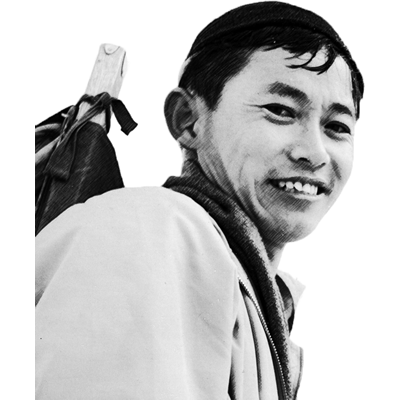Syun-Ichi Akasofu

As a young man in Japan, Syun-Ichi Akasofu found that two things interested him — the aurora borealis and mountain climbing — though not necessarily in that order.
The two interests soon drew him to Alaska, where he became a prominent leader in auroral research and an energetic administrator who helped build the International Arctic Research Center.
Akasofu earned his bachelor's degree in geophysics in 1949 at Tokohu University in Sendai, Japan. "I was not very much interested in studying," Akasofu said in a reminiscence he videotaped in 2015. "My father said I graduated from the Department of Mountaineering."
To earn money for his climbing, he got a job at an observatory that measured the Earth's magnetic field. He changed the photosensitive paper in the magnetometer. He asked the observatory manager about small changes he noticed. The manager said the aurora in Siberia or Alaska caused them.
That sparked Akasofu's interest. Eventually, he wrote to the world-famous space scientist Sydney Chapman with some questions. To his surprise, Chapman not only responded but invited him to study at the Geophysical Institute in Fairbanks, where he spent time each year after leaving Oxford University. The Geophysical Institute even sent Akasofu the airfare.
With Alaska's mountains also beckoning, he couldn't refuse.
His subsequent work on the aurora won many awards, including the Chapman Medal from England's Royal Astronomical Society in 1977.
After becoming director of the Geophysical Institute in 1986, Akasofu helped modernize the Poker Flat Research Range and establish the Alaska Volcano Observatory.
He also founded the International Arctic Research Center, working with the government of Japan and Sen. Ted Stevens, R-Alaska, to obtain funding. When the center opened in 1999, he became its first director.
At IARC, he grew more intrigued by climate change science. Though he retired in 2007, he has continued to investigate the topic. He has argued that the science, to date, hasn't explained well how much global warming is part of a natural cycle and how much is from increased atmospheric carbon. He offered that perspective publicly at a congressional hearing in 2006 at Stevens' invitation. Since then, he has published several papers on the theme, often drawing rebuttals from other scientists.
More online about Syun-Ichi Akasofu:
- An often light-hearted YouTube video looking back at his time at UAF
- A brief history of the International Arctic Research Center,
- A 2013 paper Akasofu published in the journal Climate
- A March 2017 column by Geophysical Institute science writer Ned Rozell


